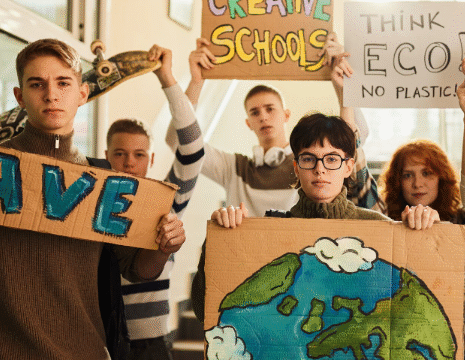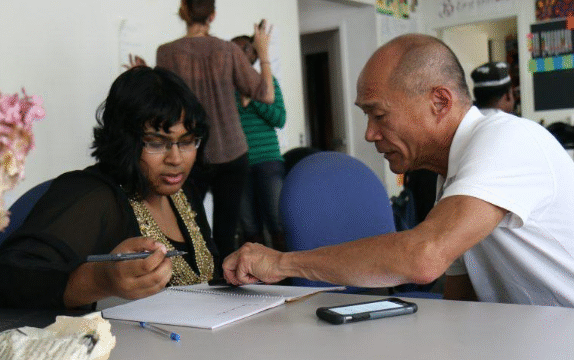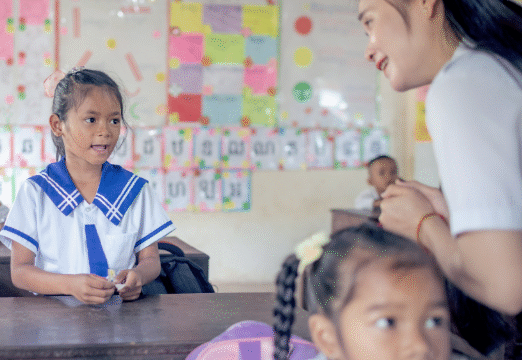Early childhood education is often described as the
foundation upon which lifelong learning is built.
The years between birth and the age of eight are
a time of rapid growth, exploration, and discovery. During this period, children develop essential skills that shape their ability to succeed academically, socially, and emotionally. Making high-quality early education accessible to all children is not only a matter of fairness but also an investment in the future of communities and societies. When everyone has the opportunity to benefit from nurturing educational experiences in their early years, the potential for personal and collective growth expands dramatically.
At its core, early childhood education goes far beyond simply teaching letters and numbers. It is about creating environments where young children can thrive, feel safe, and learn through play and interaction. A well-designed early learning setting fosters curiosity and encourages creativity, helping children build problem-solving skills and resilience. Teachers in these environments often focus on holistic development, paying attention not just to academic readiness but also to emotional intelligence, communication, and social skills. These qualities are invaluable as children progress through school and later enter the workforce.
Research has consistently shown that children who participate in early education programs often perform better academically and socially than those who do not. They are more likely to stay engaged in school, achieve higher literacy and numeracy skills, and adapt more easily to new challenges. Furthermore, early education programs can help reduce learning gaps between children from different backgrounds. For instance, children from low-income families who attend high-quality preschool are more likely to catch up with their peers and have a smoother transition to primary school. This demonstrates the power of early intervention in leveling the playing field.
Access, however, remains a significant challenge. While many communities understand the value of early childhood education, not every family has the same opportunities. In some regions, programs are too costly, making them out of reach for families with limited financial resources. In other cases, rural areas lack facilities altogether, meaning parents must travel long distances or forgo formal early learning options. Language barriers, cultural differences, and a shortage of trained educators can also create obstacles. Addressing these challenges requires collaboration between governments, educators, and local communities to ensure that no child is left behind.
The importance of inclusion in early childhood education cannot be overstated. Every child, regardless of their background, deserves access to nurturing environments where they can learn and grow. This includes children with disabilities, who may require additional support or resources to fully participate. Inclusive classrooms benefit everyone, as they teach acceptance, empathy, and cooperation from an early age. Children who learn in diverse settings are more likely to grow into adults who appreciate differences and contribute positively to their communities.
Parents and caregivers also play a central role in early education. Learning does not stop at the classroom door; it continues at home, in playgrounds, and in everyday interactions. Reading together, engaging in conversations, and encouraging imaginative play are simple yet powerful ways to foster a child’s growth. When schools and families work hand in hand, children receive consistent support that strengthens their learning experiences. Parents who are actively involved in their child’s education often report stronger connections to their community and a deeper understanding of their child’s needs and potential.
Governments around the world are increasingly recognizing the importance of investing in early education. Programs such as universal preschool and subsidized childcare are becoming more common, aiming to make learning opportunities more affordable and widely available. While progress has been made, much work remains to ensure that these programs reach everyone who needs them. Funding, training for educators, and curriculum development are all critical components of building sustainable early education systems. By prioritizing these areas, societies can create long-term benefits such as reduced dropout rates, stronger economies, and healthier communities.
Technology is also reshaping the landscape of early childhood education. Digital tools, when used thoughtfully, can enhance learning by providing interactive and engaging experiences. For example, educational games and apps can introduce children to basic math, language, and problem-solving skills in fun and creative ways. However, balance is essential. Screen time should never replace hands-on play, social interaction, and outdoor exploration, which are equally important for healthy development. Educators and parents must carefully guide how technology is used to complement, rather than dominate, early learning experiences.
Another important aspect of early education is the role of play. Play is often misunderstood as mere entertainment, but it is one of the most powerful tools for learning. Through play, children experiment, take risks, and learn about the world around them. Whether building with blocks, pretending to run a shop, or exploring nature, children develop language, motor skills, and cognitive abilities. Play also fosters collaboration and teamwork, preparing children to navigate social settings with confidence. Emphasizing play-based learning ensures that education is not only effective but also joyful.
Communities have an essential part to play in expanding access to early childhood education. Local initiatives such as community centers, volunteer-driven playgroups, and library programs can provide valuable resources for families. By pooling resources and knowledge, communities can create safe spaces where children can learn, especially in areas where formal preschools are limited. Strong community involvement also strengthens social bonds and creates a supportive network for families.
The vision of early childhood education for everyone is ambitious but achievable. It requires a collective effort from families, educators, policymakers, and communities. It means valuing the potential of every child, regardless of circumstance, and ensuring they have the tools to flourish. The benefits ripple outward, shaping not only the lives of individual children but also the future of entire societies. When children start life with strong educational foundations, they are better prepared to tackle challenges, embrace opportunities, and contribute positively to the world.
As we reflect on the role of early childhood education, one thing becomes clear: it is not a privilege but a right. Every child deserves the chance to learn, grow, and dream from their earliest years. By working together to remove barriers and expand opportunities, we can move closer to a world where early education is truly for everyone. Such a world promises brighter futures, stronger communities, and a shared sense of hope for generations to come.






